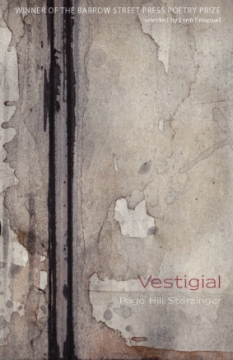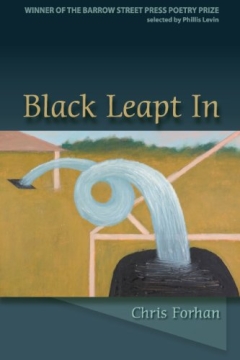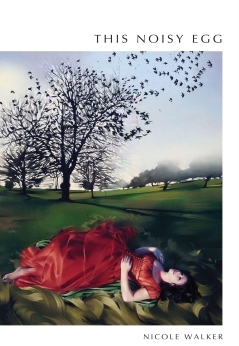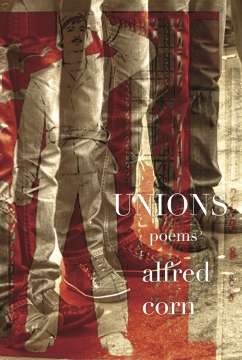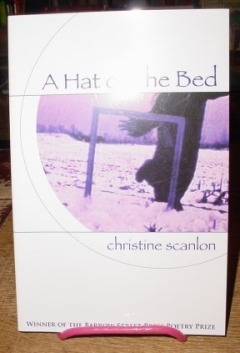Description
Barrow Street 2012 Prize Winner
“[F]ragments—my/specialty,” writes Page Hill Starzinger in her compelling first book, Vestigial, and, indeed, the title implies the book itself is a remnant. But if Vestigial is fragmentary, (“leavinges/and fragmentes…etched and eroded…”) it is a flood of fragments. This is a vivid, dynamic, and muscular collection whose poems seem able to sweep everything into themselves—from the etymology of early English to the percentage of homes in Delhi without clean water. Yet the poems are neither anarchic nor hectic. In fact, in counterpoint to their energy, there is a beautiful, almost grave, and measured cadence to this work as Starzinger, like Penelope, weaves and unweaves. As she writes, “I keep trying to shape a story. I keep disappearing.” Vestigial is a marvelous debut.
—Lynn Emanuel, Contest Judge
Vestigial whirls around a powerful magnetic center where particles, or vestiges, of now-living or lost worlds spin themselves. This poet’s imagination is the fiery magnetism that revivifies the word-hoarde through these dazzling etymological flashes—ancient and new embodiments of knowledge, science, history—in the paradise furnace of poetry. The velocity of the author’s insights stuns the reader: we follow, bewitched, into synaptical leaps that seem impossible to sustain, yet are sustained and unstoppable. Vestigial is a virtuoso performance, learned in the extreme, yet also eloquently empathetic. “Unfold your hands—/fall a/part” she writes. And we open the page and fall a/part,” then are re-made, wholly.
—Carol Muske-Dukes
“Can you follow/yourself? Unstitch. Rename as/entropy” Tweet
“Could we reduce to a point that is fugitive” Tweet
Reduction
Vestigial leavinges
and fragmentes.
These. However: whole—
like us
a piecing together;
recovered
—or a kind of gluing,
like dinosaurs from Hell Creek Formation,
with soft tissue and blood vessels inside
femurs.
Recursive
is not the point, not even
Chomsky’s theory—embedding entities
within like entities—a tree structure.
Because the most powerful ancient
Amazon cultures, who resist
change, have no stories
for what came before. There, prosody—present tense:
woman winding raw
cotton, child at her feet, singing
a series of notes,
like a muted horn (what
sounds).
What
is not enough about this? Could we fall prey
to transcendence,
and reduce, to a point that is
fugitive; you are at the tip
of my tongue, then
not. Just like a leaf drifting
out of the picture. It’s called
xibipio—
not simply gone,
but out of experience. Of Christ
they ask: have you met
him?
